
Please Share your Email if you Wish to Receive the Golden Tips & Tales Newsletter from History of Ceylon Tea Website
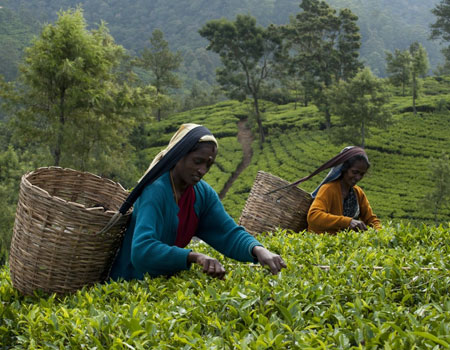
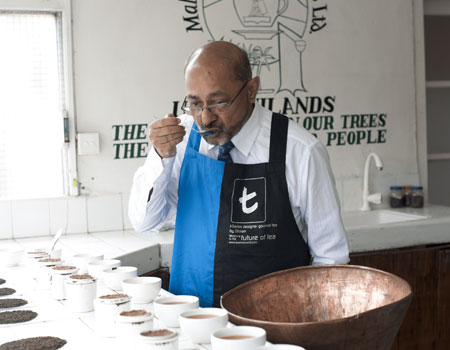
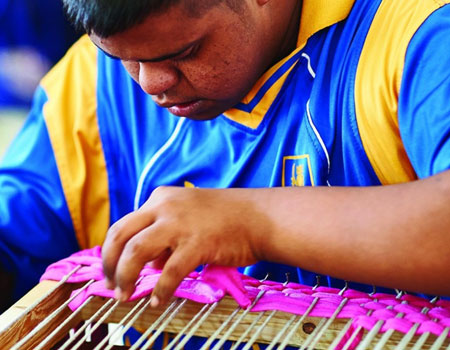
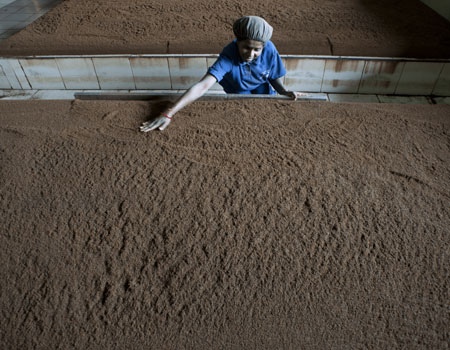
Although tea isn't as heavily marketed as coffee, ask any tea-drinker and they can write essays on its anti-aging and antioxidant properties which will help in disease prevention. Plus, what else would you order during one of your mamak sessions? Teh Tarik, of course! Delicious beverages aside, although we Malaysians are highly exposed to tea, we know so little about the industry itself. That is why when a rare opportunity to gain insight into the world of tea presented itself through Merrill J Fernando, the founder of Dilmah Tea, we immediately took it on.
Centuries ago, tea workers suffered through inhumane working conditions, abject income levels, and poor housing and health due to overcrowding and unhygienic living conditions. Things were especially bad during peak seasons, where temporary workers are employed by tea gardens at wages lower than the minimum. Some companies like Dilmah Tea though, are setting the standards for its efforts to ensure that it runs its business in an ethical manner, and that all employees and workers have basic necessities provided and are treated fairly. Through the Merrill J. Fernando (MJF) Charitable Foundation, all profits are retained in Sri Lanka and reinvested to improve living standards among tea estate workers and the community at large. We speak to the man who believes that "business is a matter of human services", and discover how he built his tea business from scratch and flourished by putting his people first.
What were your growing up years like?
I was born in a small fishing village, 30km away from the city of Colombo, Sri Lanka, to a family of eight. I had a modest upbringing. We were not rich by any means but my parents, particularly my mother, inculcated in me strong values. These values may have driven my ambition to succeed.
I was thinking of becoming a lawyer from school. At that time, tea tasting and tea trading were under British hands, and was not open to local people for many years. However, in the year I passed my senior school certificate, there were six boys recruited to tea tasting and I happened to be one. It was a very coveted job, so when that offer came to me I was surprised. It was too good to turn down, so I gave up my thoughts of becoming a lawyer and became a tea taster.
Tell us about how you started your tea business.
I started my tea business with a very nominal capital equivalent to about $2500 in 1950. I obtained a loan for this amount from my father and I repaid it within a year. To reach the position I am in today, I had to work very hard, travel extensively, take risks and go through some serious scandals. I faced situations which made me stronger and gave me the courage and strength to keep moving and to never yield. I remember many instances of despair and anguish when the country became sick with trade union activities, strikes, work stoppages and situations which seriously damaged our economy and brought this country to the brink of bankruptcy.
We had very little food, we had no comfortable or basic requirements for good quality of life even one had the money. We had to stand in queues for hours and hours to buy bread, rice and sugar. We could not buy medicine, good food... we could buy nothing virtually, all in the name of socialism.
"We had very little food, we had no comfortable or basic requirements for good quality of life even one had the money." - Merrill J. Fernando
Does the name Dilmah mean anything?
'Dilmah' was coined from the names of my two children, Dilhan and Malik. I did so to demonstrate that Dilmah is my third child, and that would earn the respect of consumers. It’s spelt out honesty and integrity of my tea and my purpose. My entrepreneurial effort was to establish the noble principle of farmers taking their produce to consumers directly. I thought that if I was successful, I would pave the way to eliminate poverty in the tea, coffee and cocoa producing countries initially. Value addition by packaging and branding is the only segment of the tea industry which is profitable. Sadly, those profits are made by foreign traders in rich nations. That is why our farmers and their workers remain poor.
What has been your fondest memory of tea?
After my training in the plantations I went to Mincing Lane, London, which is the center of world for tea. There, I found that most of the time they mixed tea from other countries with a little bit of Ceylon tea and marketed them as Ceylon tea. I realised that Ceylon tea industry will not survive for long, as it is the finest in the world and therefore it is expensive, but that it also had a big future. Hence, I dreamt of building my own brand as a young man. I thought that if I had my own brand, I will market the best in the world with the finest quality, and share my earnings with the poor and the disabled. So in 1988 I launched my brand. That was one the best decisions and moments.
"I will market the best in the world with the finest quality, and share my earnings with the poor and the disabled." - Merrill J. Fernando
Tell us about some of the ways Dilmah strives for ethical tea production through the MJF Charitable Foundation.
Dilmah channels a significant share of its profits into the MJF Foundation, whose primary charter is that of alleviating poverty, and helping the underprivileged, the sick and the disabled. This decision was inspired by my conviction that people – our employees and customers worldwide – have assisted in the growth of our family business. It is my duty to return some of these earnings to those communities that support us. It is my firm commitment to donate 10% of the profits of every single company in the MJF Group to the MJF Charitable Foundation.
A generous portion of my personal earnings are also donated to the Foundation. I made it my duty to extend a helping hand to my employees and to the community. This is my way of practising corporate responsibility and social justice. Dilhan heads the Foundation activity with a dedicated team of executives, who enjoy their work in bringing hope and comfort to the underprivileged. You can read more information on the work of the MJF Foundation on its website www.mjffoundation.org.
We also offer education and other benefits to plantation workers. The scholarships offered by the MJF Charitable Foundation have provided education rights through university to tea pickers' children who would otherwise never sighted a university. Today, there are doctors, lawyers, architects, engineers and several other professionals who were destined to be the next generation of tea pickers but now enjoy the good things in life.
Tell us about your relationship with your employees.
Back when I had 18 workers, I was true to them. When I had about two three hundred workers then, I was also true to them. I frequently go to the factory and talk to my workers. When I see somebody with bandages, I ask what is wrong with them and send them to hospital in my private vehicle. Coming from humble beginnings, I treat all my employees alike despite their level. I look after them as far as and as better as I can.
What has been the best career advice you’ve ever received?
“I shall pass this way but once therefore, any good that I may do or any kindness that I may show, let me do so now for I shall not pass this way again”.
What does success mean to you?
Success is not about money; it's about achievement, service to my staff, my country and to those who need. Entrepreneurs keep working as their passion continues to drive them towards success. As I look back from my humble beginnings, I thank God for what I have achieved. Today, what is more important is to maintain the integrity, promise and strategy of the brand and to share my success with those who need my support. Entrepreneurs and businessmen must remember that their "creation" is not merely for their own individual success but, for their families, their workers and for society at large. Sharing my success through my Foundation with those who need help and support today is my joy.
"Success is not about money; it's about achievement, service to my staff, my country and to those who need" - Merrill J. Fernando
Last question, but it must be asked: what is your favourite tea flavour, and how do you take it?
My favourite tea is Dilmah English Breakfast tea. In selecting our Dilmah Breakfast Tea I went back to the original Breakfast Tea which was a favourite of the pioneer planters. A bright, bold and medium strength tea from the Dimbula region. I enjoy my tea with biscuits, and take it without sugar or milk.
"Entrepreneurs and businessmen must remember that their "creation" is not merely for their own individual success but, for their families, their workers and for society at large" - Merrill J. Fernando
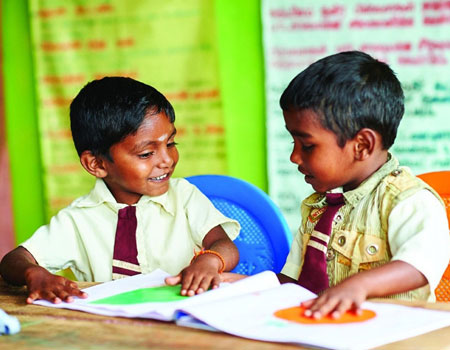
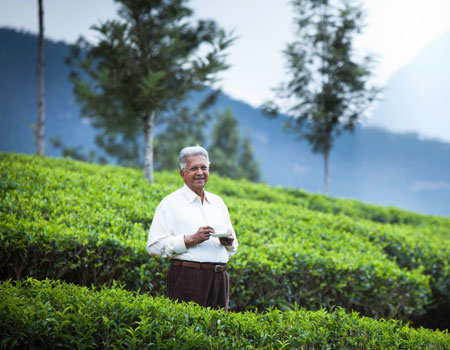
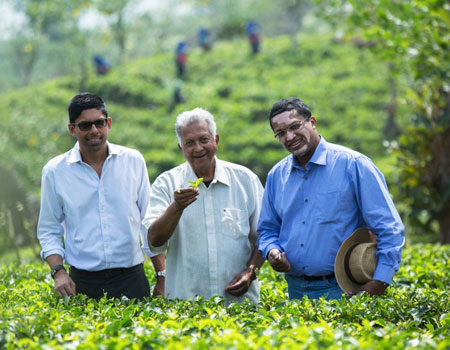
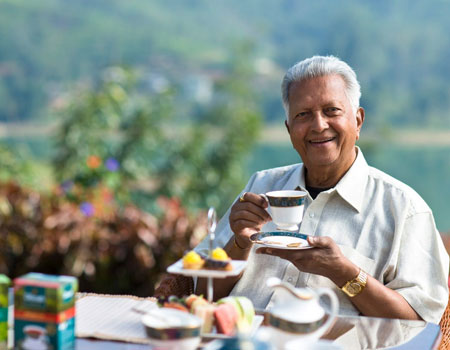
Source - https://my.asiatatler.com/society/acts-chari-tea-founder-dilmah-gives-back-society
Comments
(In keeping with the objectives of this website, all COMMENTS must be made in the spirit of contributing to the history of this estate, planter or person i.e. names, dates & anecdotes. Critical evaluations or adverse comments of any sort are not acceptable and will be deleted without notice – read full Comments Policy here)